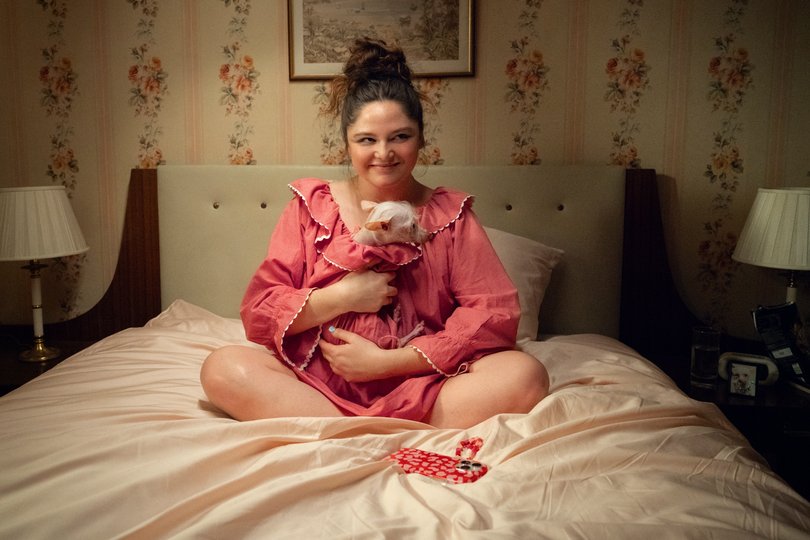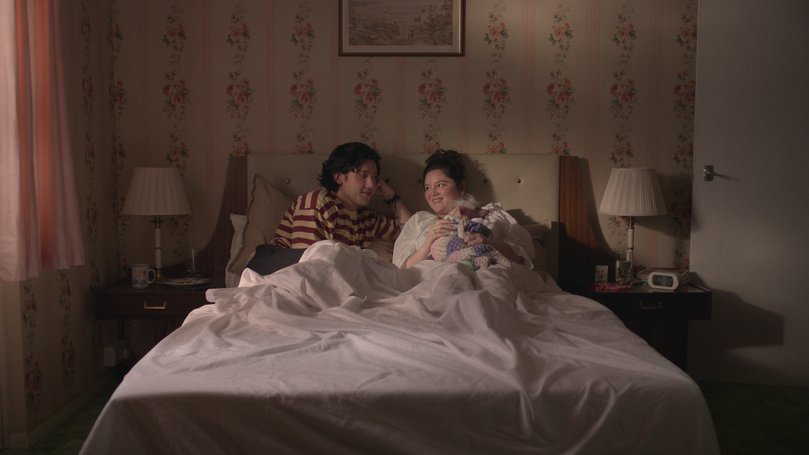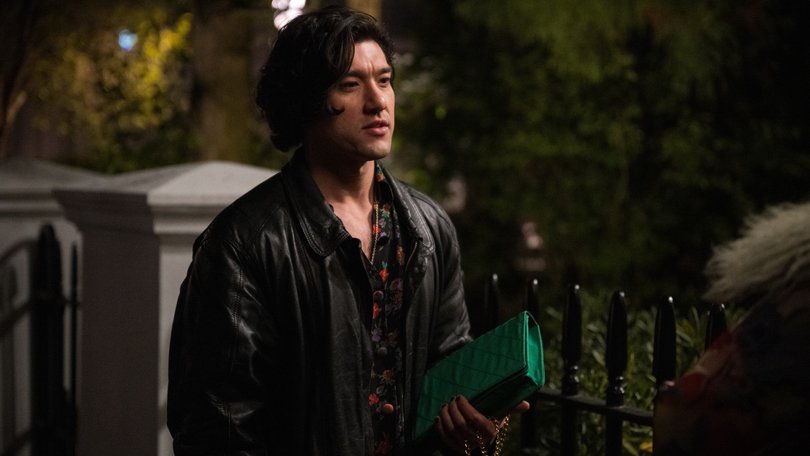Too Much review: Lena Dunham’s Netflix series roars with life and verve
No matter what you think of Lena Dunham, you cannot deny she is so gifted at creating characters you want to love and worlds you want to at least visit if not live.

Jessica wants the English rom-com happy ending.
A thirtysomething American living in New York, she’s just gone through a rough break-up, to put it mildly, and her life is, well, not ideal. Living at home with her mum, her sister and her grandma, she needs to make a change.
It’s not until her almost-former brother-in-law and boss suggests she takes a secondment in London, do images of blue doors in Notting Hill and countryside matrimonials start flashing through her mind.
Sign up to The Nightly's newsletters.
Get the first look at the digital newspaper, curated daily stories and breaking headlines delivered to your inbox.
By continuing you agree to our Terms and Privacy Policy.Surely, in England, where tea is drunk, where men are gentlemen and where happily-ever-afters grace the pages of Jane Austen books, Jessica can fulfil her romantic fantasy of being loved and appreciated for who she is.
Reality is different.

For one thing, her Airbnb at an “estate” is not the bucolic manor or cottage house she might have been expecting, but a council flat, and the indie musician she meets on her first night comes with his own bag of problems.
Too Much is Lena Dunham’s new series, and it’s the most personal project she’s worked on since the end of Girls almost a decade ago.
You could take a punt at where it falls on the spectrum between loosely inspired and semi-autobiographical, but it definitely draws from her own experiences moving to London in 2021, a few years after her relationship with Jack Antonoff broke down.
She arrived in the English capital for work and met Luis Felber, a musician, whom she married after a few months. He co-created this show. Dunham now lives in London in the upmarket neighbourhood of St John’s Wood.
On the surface, Too Much is a fish-out-of-water rom-com about a plucky and vivacious American, but there is so much more going on. The show could be read as Dunham exploring the huge life changes that have happened to her through the characters she created.
Jessica, played by the wonderful Megan Stalter of Hacks fame, is not a direct fictionalised avatar of Dunham, but there are definite parallels. She works in a creative industry as a producer for TV ads, and she’s someone some might describe as “a lot”, much like Dunham has been. And that’s from people who were being generous.
Jessica can be narcissistic, she can be sensitive, and she can be an arsehole – all things Dunham has been accused of – and she is hung up on her ex-boyfriend Zev (Michael Zegan), who dumped her for influencer Wendy Jones (Emily Ratajkowski).

A flashback episode midway through the season, which reveals exactly how Jessica and Zev’s relationship broke down, is extraordinary – and, if this is even 20 per cent autobiographical, it really gives you pause about Antonoff.
Jessica makes Instagram videos of herself addressing Wendy, as a sort of stream-of-consciousness diary that she keeps private. They’re generally unhinged, the mark of someone who is holding onto something long gone, but also maybe never was what she thought it was.
Sometimes they’re frustrating because she’s still so fixated on Zev when she has something brewing with Felix (Will Sharpe).
Felix is not Mr Darcy nor William Thacker, and Dunham plays with the rom-com tropes that we’ve been fed for centuries about the lovely man who’s going to change everything for us.
Felix has his own demons. He’s newly sober and trying to stay that way, still attempting to make a music career (his band is not very good), and could sometimes be classified as homeless. He has also unresolved family issues that will come to the fore in a later episode in which Stephen Fry appears as his dad.
While it might be framed within a will-they-won’t-they, Too Much is really exploring what needs to happen within ourselves to accept who we are, and why we deserve love, overcoming all the times when someone made us feel like we didn’t.

That’s always been Dunham’s gift: to write characters that, no matter how awful they can be, deserve to be loved, by themselves, by others, and by the audience.
They are shaded and nuanced, and they seem like people you would really know.
That level of care and attention is also extended to all the supporting ensemble, and you get some stand-outs including Adele Exarchopoulos as Polly, one of Felix’s friends, Richard E. Grant as Jessica’s mercurial London boss, Naomi Watts as his wife, Andrew Scott as a strange director, Janicza Bravo as her colleague Kim, and Dean-Charles Chapman as Jessica’s neighbour who has a weird crush.
Jessica’s family are played by Rita Wilson, Rhea Perlman, Andrew Rannells and Dunham.
The world of Too Much is classic Dunham in that every corner of it is somewhere you want at least visit if not live. There’s so much life and verve in her fictional universes, when people being ridiculous can lead to the best laughs as well as heartbreak.
Even in hilarious, heightened situations – like an accidental ketamine binge – it ends up revealing raw, emotional truths.
Not many writers can capture that so vividly and convincingly, so no matter what you think of Dunham, you can’t ever deny her talent.
Too Much is on Netflix

